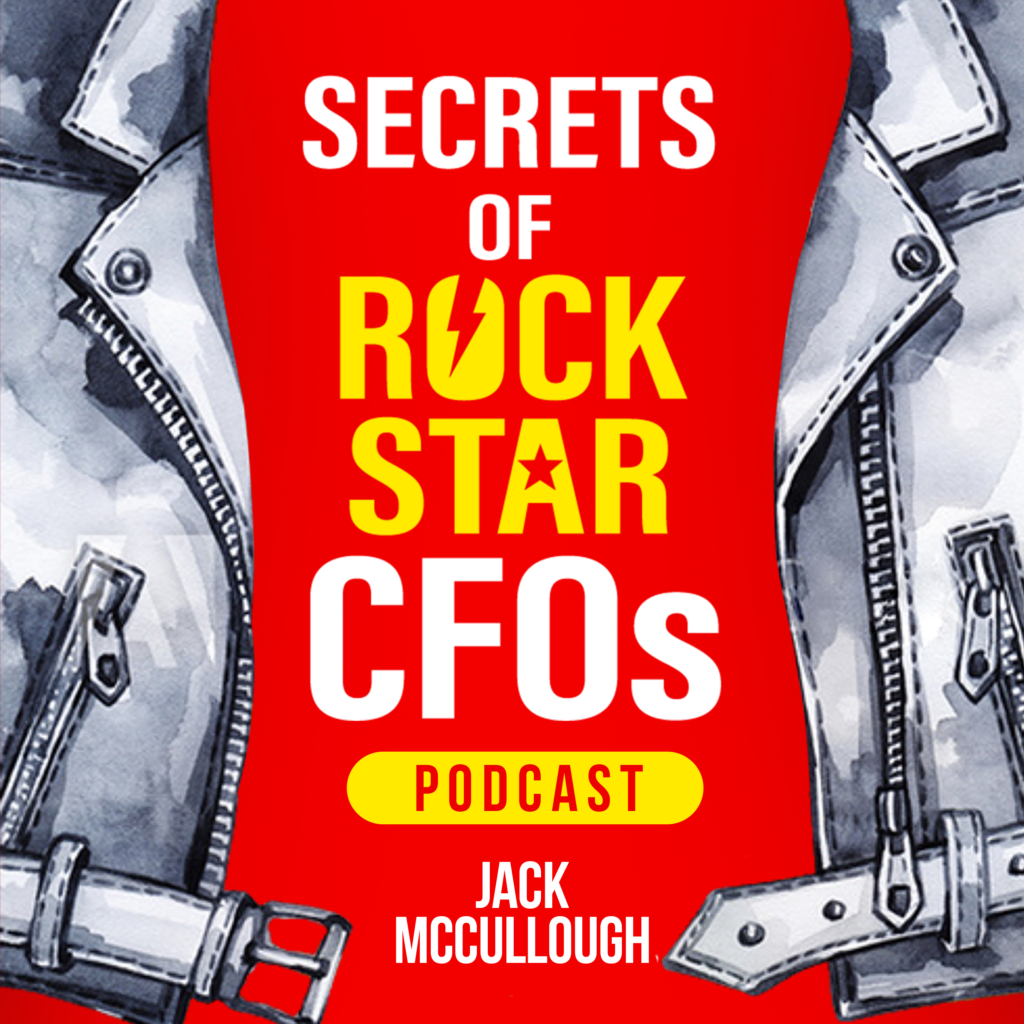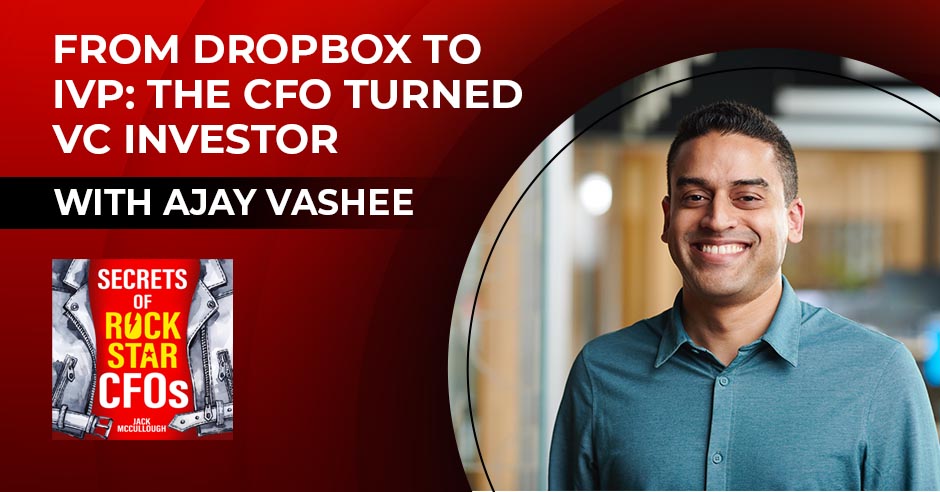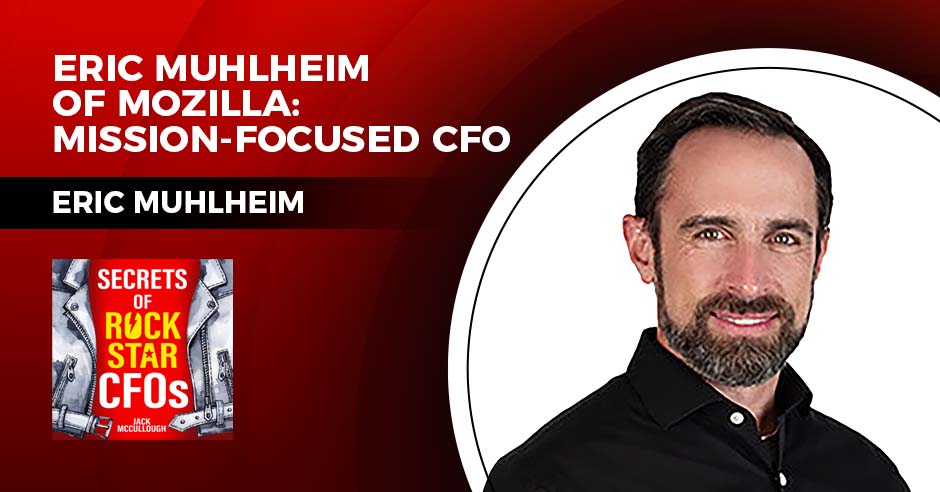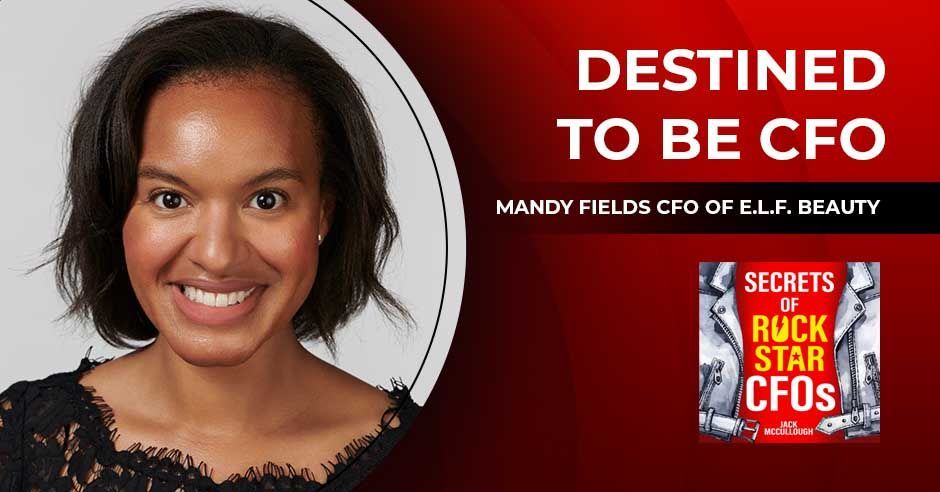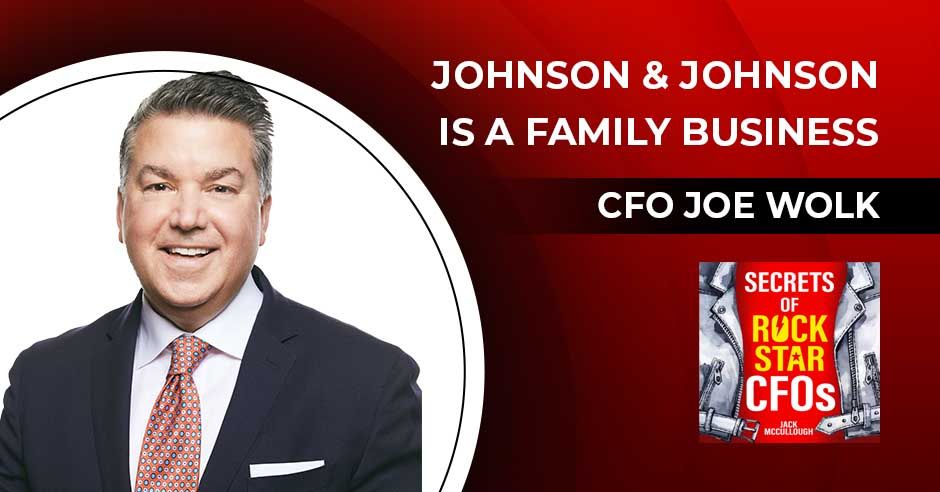Dr. Aradhana Sarin, CFO and executive director of AstraZeneca, has traveled a journey that’s both inspiring and impressive. In this episode of “Secrets of Rockstar CFOs,” she joins host Jack McCullough to share her path from practicing physician in Africa and India to leading a global enterprise. You’ll hear about her pivotal decisions and the challenges faced, her focus on team building and her passions, including sustainability, elevating female leaders–and one that might surprise you.
Listen by clicking below. The Q&A, lightly edited and trimmed for clarity, follows.
—
Listen to the podcast here
Thank you, everybody. Welcome to the “Secrets of Rockstar CFOs.” I’m excited to introduce Dr. Aradhana Sarin, who is the CFO and executive director at AstraZeneca. Aradhana, welcome to the show.
Thank you so much, Jack. I appreciate you having me here.
It’s great to have you. I’ll be honest. When I was preparing for this, I was thinking, “How do I introduce you to the audience?” One of the presentations that I give is on the new prototype of the CFO, which was changing anyway. It’s changed more dramatically in the last few years. A lot of the qualities of the new prototype CFO are they’re analytical, innovative and collaborative. They are very thoughtful in their approach. They have an empathetic leadership style. They remain financial experts as well.
I didn’t define the prototype thinking of you but I may as well have. You check all of those boxes. On the other hand, your background is pretty unconventional, having started your career as a medical doctor in India, and you’re a CFO of a true global powerhouse. I would love to start a little about your journey because our audience is going to be curious. How do you go from a medical doctor to the CFO of AstraZeneca?
First of all, none of that was planned. I grew up in Tanzania in East Africa in a very modest background. What my upbringing in Tanzania taught me is the value of resources and how those are allocated. A lot of the challenges that common people face are medical care, food supply and water supply. It’s understanding economies and how they’re different.
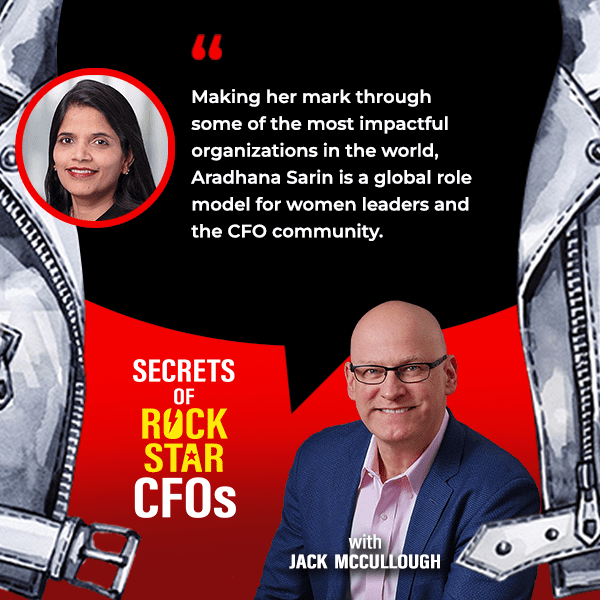
For example, in Africa, a lot of the economies are agriculturally driven, and so forth. I went to India. I trained as a medical professional, practiced as a doctor in India, came back to Tanzania, and did that. What I learned about myself was that I loved learning medicine and studying medicine. I didn’t as much enjoy practicing medicine. I enjoyed it but it became routine after some time. I wanted to do something else.
I also realized that to have a bigger impact, one has to understand business and I had no business background. I decided to apply to business schools, finally went to Stanford and got my MBA. I ended up loving finance in my first semester even though I had never studied finance or even had done math. I hadn’t done math for 10 years because I was so focused on biology, medicine and so forth but I ended up loving it.
I got a job on Wall Street as I left Stanford. I ended up staying in investment banking for almost two decades after that. Every day, I learned a lot. I saw various cycles of ups and downs in the industry on Wall Street and got to analyze a lot of companies as I was taking them public, raising financing for them or doing strategic transactions for them.
It gave me a good sense of what a good business strategy looks like. I moved to the pharma sector and joined a company called Alexion Pharmaceuticals, which was a bit of a turnaround and growth story. That company was acquired for almost $40 billion by AstraZeneca. I’m at AstraZeneca as their CFO. It has been a great journey. I learned a lot about all sorts of roles but I never stop learning.
One of the great qualities of any leader is intellectual curiosity and learning until the day they die. You started that by mentioning that the journey wasn’t planned. As you describe it, there’s no way anyone could have planned that because when you were a doctor, you were treating AIDS patients and other things back in the day. That’s my understanding. Is that correct?
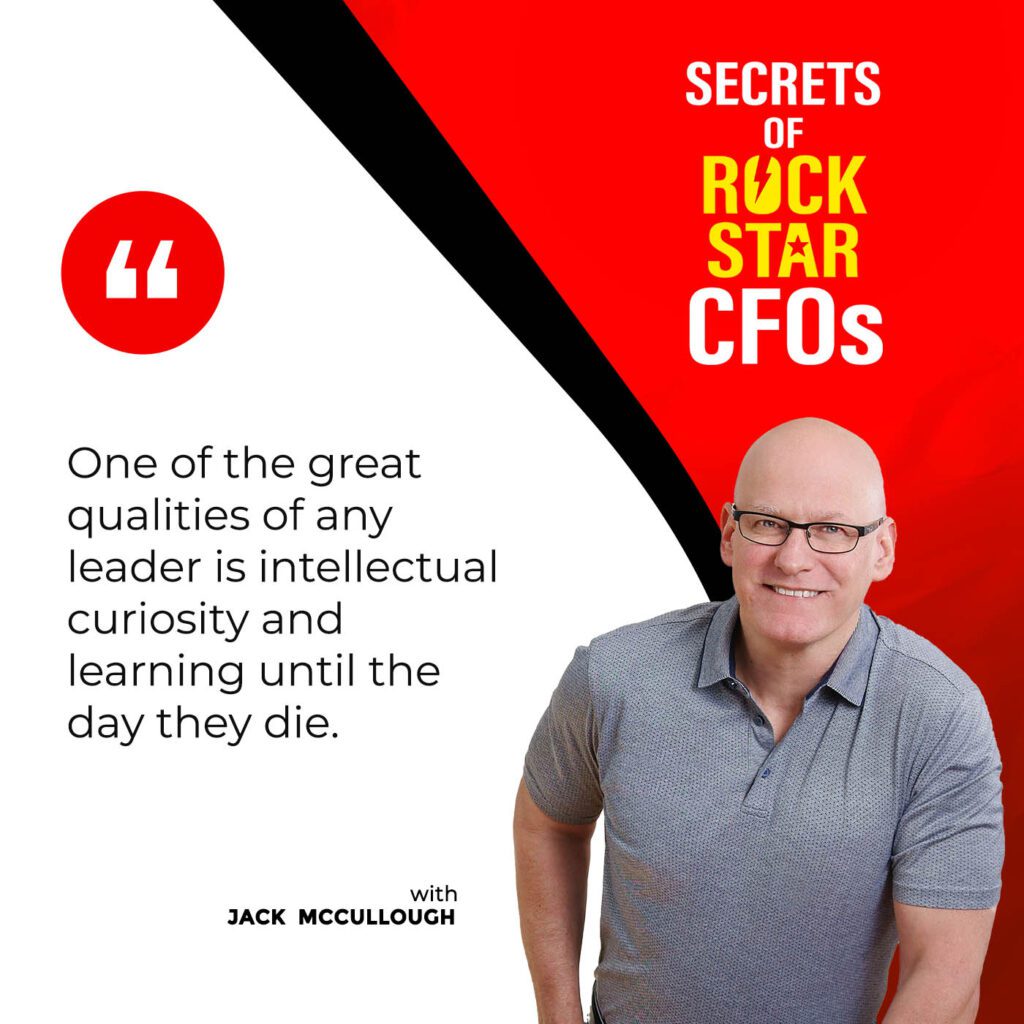
I was very much in the ward treating patients and seeing patients in the outpatient department. I was a hands-on physician.
It’s a fascinating story. It’s the prototype of the CFO. I advise a lot of up-and-coming leaders and people who are going to be the next generation of CFOs. They will be CFOs in six to three years. While you fit the prototype, I can’t advise them to go back to medical school as a viable path, “Why don’t you go to medical school and practice as a physician?” It’s a terrific story. I’m sure your background being a CFO at a biotech company is very helpful because you understand the science, not just the business.
It’s different for different people. In whatever sector or area of interest, it is generally a pretty good idea to learn the business because while you may be a CFO or a finance expert, your real value-add can be when you understand the business aspect as much as you understand the finance aspect. That’s true for me but I’m in the healthcare sector for people who are in technology or other sectors. Understanding the business gives you a whole different perspective, which allows you to be a better thought partner and a strategic partner to better help allocate resources and drive strategies, for example.
That makes all the sense in the world, even when you’re talking to people on your R&D team. I remember when you presented at [a previous CFO Leadership Council] conference. You mentioned that finance and accounting are your team. The whole company is your team. That probably gives you a measure of credibility that you can ask thoughtful follow-up questions.
I do view the entire company as my team. I don’t necessarily view only the finance department as my department. I equate it to a living and breathing organism. Every cell and organ in the body has a role. It’s all interdependent. You can’t say, “We can’t function without the HR department or science department.” It’s the interdependencies and the ability to drive the entire organism. The entire company and all individuals are my team, which is why in the CFO role, it’s important to have an understanding of all the different parts of the business. Whatever is your fundamental area of business value, whether it’s technology, semiconductors, energy or whatever sector you are in, you have to understand the sector as well.
It’s such a useful thing because, at the start of my career, the best accountant would be promoted to the CFO role. CFOs had to understand the business a little bit but it was the fifth most important thing that they would bring to the role. It’s accounting, finance and internal controls but now, it’s strategic, innovative and all of those other things. It’s a much more exciting and important role.
One can have more impact but I also think it’s not static. It is dynamic. CFOs several years from now will require different skillsets to be successful and impactful. It’s evolved from years ago when accounting and controls were important, which still are very important and fundamental to the finance process and delivery but it’s become much more strategic. In the future, it will also be people who are technology-savvy and who can integrate with systems and processes within finance and drive a lot of that across the enterprise while also being strategic. It’s a constant evolution. Every decade requires different skills that you need to continue to drive.
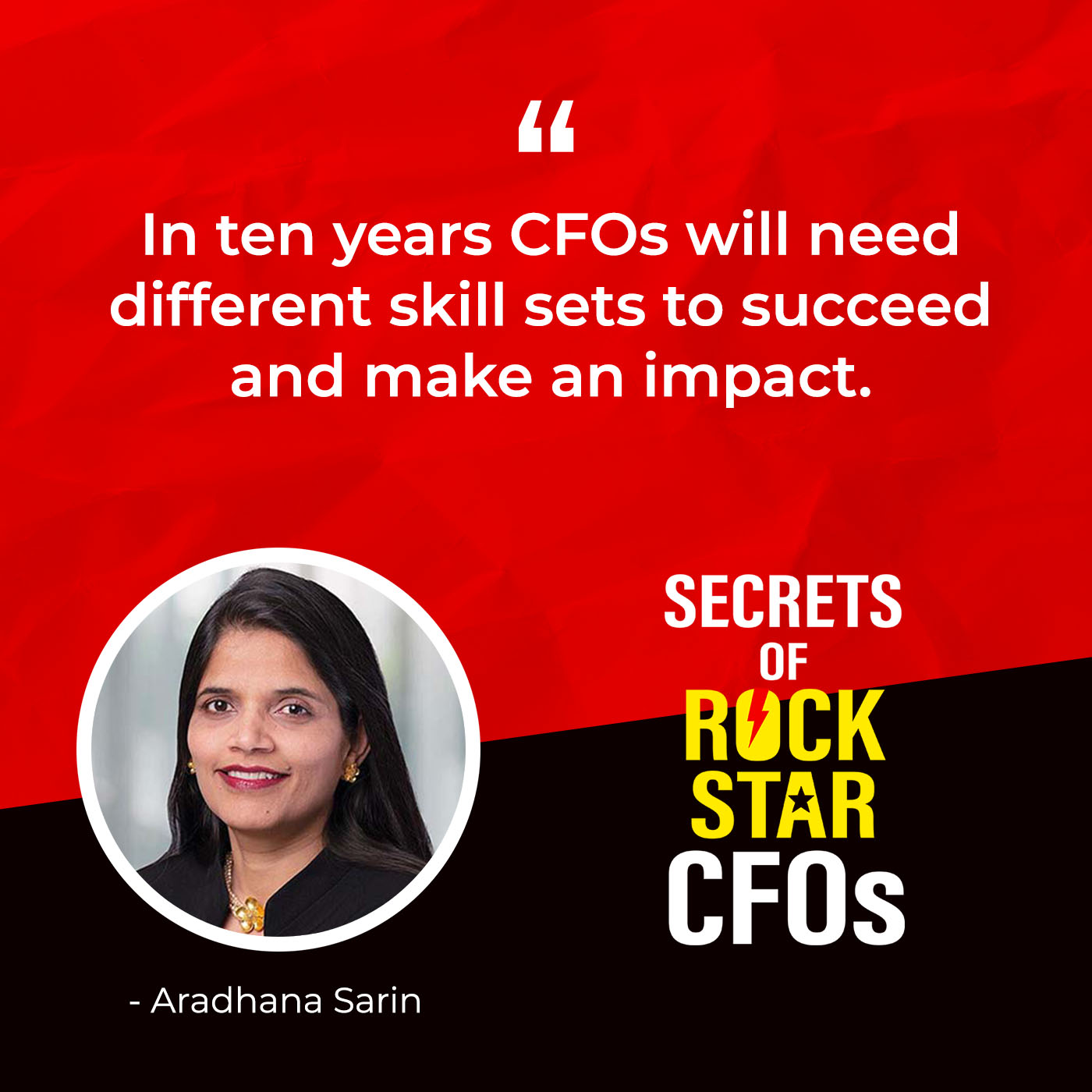
One of the things I know that you’re particularly passionate about, because it came up in our prior conversations and in your presentation, is the whole art and science of building a team. You had a couple of quotes that I particularly loved. You talked about influence, not authority. You mentioned also that fear works but love works better and also being realistic that you can’t please all the people all of the time. You built a great team, not only at AZ but in prior aspects of your career. I would love to get your philosophy on how you build a great team. How do you attract, recruit, retrain, build and develop? What’s worked for you? What’s the secret to your success?
I don’t know if I can pinpoint one reason but having a great team is everything. More and more in my career, I’ve realized that your success is determined by the success of the people around you. If you can build a great team and motivate them to bring their best selves to work every single day, you will get great outcomes. Attracting the right people involves networking and making sure that you are aware of where great talent exists if and when that opportunity arises but also making sure that you look at people for what’s ideal or needed for that specific company at that specific time.
Somebody may be very talented and a great person for the role but that may not be what the company requires at that time. There have been times when I’ve had to make difficult decisions about people, for example, but it was what was needed for the company at that time of transition or whatever the company was requiring at the time.
The other part is how you motivate people to bring their best selves to work every day and give you 110 percent. That is driven by whether people believe you are truly invested as a leader and as a manager in their success. Are you supporting them when you onboard them and making sure they’re set up for that success? Are you available to help solve problems? Do you accept them fully as individuals, not just as professionals?
We all have different personas. We have a work persona, a family persona and a friend persona but it’s accepting the whole individual so they can bring their full self to work and then be able to contribute. It’s a lot of those factors. I am very passionate about development and learning. I challenge my team to do the same with their teams. Maybe that’s part of it.
In our prior conversation, you mentioned that people join a company but stay with a company sometimes not for the same reasons. I’m not going to say it’s easy to recruit people at AstraZeneca because it’s not easy to recruit people anywhere but it’s a great brand and a very well-respected company. It’s easier than some other situations might be but you’re going after the best and brightest. They’re constantly going to have a lot of opportunities at other companies. Culturally, is interesting work what keeps them more than anything or a combination of things?
What attracts people oftentimes is the role, financial compensation or other factors but what keeps people is starting overall with the company and how they associate themselves with the purpose and the mission of the company. I’m very lucky that I work in an industry where it is purposeful work. Developing cancer drugs or drugs for other health conditions is purposeful work that a lot of people can associate with. First and foremost, it’s the purpose and whether they associate and are passionate about that purpose even though they may not directly be touching a drug or being bench scientists or any of those roles.
The second is the culture of the company. Does it encourage you to be entrepreneurial and take smart risks? Does it give you the freedom and the support to be your authentic self and drive ideas and performance? I often say the role of a manager is a little bit like pottery. I don’t know if you’ve ever done pottery but when you do pottery, you put this lump of clay. You’re beating it from the outside but you’re supporting it from the inside. It’s both. It’s stretching and pushing people but also supporting them in all ways possible to bring out the best shape of that clay.
I’ve never done pottery. My wife picked it up. I don’t know if you remember the movie “Ghost” from the early 1990s. That inspired a lot of people to pick it up right around then but we didn’t stay with it very long. I tried it a couple of times. I was trying to make a coffee cup and it looked more like a banana. I realized that wasn’t the best use of my talents but it’s a great analogy. Another thing that I was impressed to find out about was AstraZeneca and the commitment to sustainability because everybody talks about it but you’ve made impressive investments in it. You walk the walk and talk the talk. You’ve done a lot. It permeates almost every decision you make. It’s probably not an exaggeration to say that.
AstraZeneca as a company is on the leading edge of what we can contribute to sustainability in our industry and across most industries as well. There are several reasons for that. One is the fundamental belief that we need to take care of our planet. We and generations to come will benefit from a healthy planet. The second is the relationship that a healthy planet has with a healthy body. We see that in places where respiratory disease is common. We know that’s very much related to the air quality, for example, and so forth. There’s the combination and the connection between a healthy society and healthy people with a healthy planet.
You are right that we have permeated that in all the decisions and many decisions across the company that we make, starting from every site that we have for manufacturing or office sites. We have converted that to clean energy. In some of the sites, we’re even doing biogas and investing with local biogas producers to fuel our factories with biogas. We have implemented that in packaging and reducing the footprint of packaging and shipping. One of the things that is very interesting in the healthcare industry is every time you get a prescription, you get this package insert. It’s a big page that has a lot of fine print. It’s folded in.
I’ve never read one in my life.
Nobody reads it yet it’s mandated by the FDA and regulators to include that. It causes a lot of paper waste and an increase in shipping costs because that has to go into a bigger package that needs to be shipped. You could do that with a QR code on the packaging. You don’t need to put that package insert. Legislation doesn’t exist for that but we are starting to help with legislation and push that as well with society.
We’re working with various governments across the globe, especially post-pandemic, on how we increase and help increase the resiliency of healthcare systems across the globe. We have reduced our travel budget and travel-related carbon targets that are monitored and tracked across the company. We make inhalation products for asthma and so forth. You may have seen inhalers that people use. Those inhalers use propellants that are not greenhouse gas-friendly.
We are changing and investing several hundred million in a new propellant that will not have that impact. It is a big investment. We have also set up a sustainability initiative with all our procurement partners with our Scope 3 emissions with people that supply products to us whether it’s API, pipettes or all sorts of disposables to help them drive this as well because it only works if we’re all working together.
Thank you to the company for taking a leadership role in this because the clock is ticking. We have been being warned about this for a little while. It’s great that companies like yours are providing an example for the rest of us to follow. The cost that you mentioned is staggering but it’s the right thing to do. That’s terrific. I believe you are the leader of AstraZeneca’s women leaders global network. You are very big on empowering and developing female talent. I would love to chat with you about that initiative, what your role is in it and what drives you.
As many companies do, we have an employee resource network. I’m fortunate enough to be the executive sponsor for what we call the women’s network or the network of women. Many companies have similar types of networks. It’s not just for women. It’s also for men who are advocates and sponsors and support diversity. What drives me to do and take some of this initiative is helping women achieve their full potential. We have come a long way over the last several decades. It’s driving greater awareness. It’s promoting connectivity and inspiring and mentoring women across the organization.
We have so much to learn as people and individuals. The more we can get inspired by the stories of other people and know that people face similar challenges and what they did, the more confident we can get, overcome whatever obstacles we may be facing, and also get new ideas because the world is evolving very fast. A lot of times, in your day job, you’re in your silo and you’re performing your day job but you don’t know all the opportunities that may exist outside or tangentially in some other area that you may find fascinating. It’s a learning and development opportunity for all of us.
It’s a commitment. You spoke at our conference. Our community is about 40 percent female. A lot of them were thrilled by your leadership and success story. Whether it was part of the overall plan or not, you’ve become a great role model for female leaders. That’s fantastic. I wanted to chat with you. You’re on at least two boards that I know of. The word iconic is probably thrown around a little too often but in both of these cases, they’re iconic companies.
You’re on the Board of Governors of the American Red Cross. I believe you joined the board of AB InBev. Maybe you’ve been on a little bit longer. I would love to chat with you about what those roles were like. How do they influence you as a CFO? Do you bring back the things you’ve learned in your board role to your role at AstraZeneca?
I am on the board of AstraZeneca as an executive director but I have joined both the American Red Cross and AB InBev. The American Red Cross is one of the most impactful organizations. When I was approached by them, it was one of these things. You’ve seen the Red Cross from childhood. It’s the mission of the Red Cross and the values that it represents in all of us like the service, humility and generosity of people. It’s one of the largest charitable organizations.
It 100 percent depends on volunteers and donors to provide its mission. The mission is multifold. It provides and supplies lifesaving and blood products. It manages the majority of the blood supply in the U.S. and then humanitarian support, whether it’s in hurricanes or other mortar crises. What I found great about the American Red Cross is even though it’s a charitable organization, it is a very well-run organization from a financial standpoint. It’s the controls and all that. Making sure that more than 90 percent of the money that is donated goes to the end cause is very important because sometimes not-for-profits become not well-run. It doesn’t fulfill the mission and the purpose that it was set up for.
I get to meet wonderful people and see the impact that they’re having, everything from communities but also our armed forces. It’s an organization that truly supports our armed forces and their families in the U.S. The impact is very widespread. It’s a privilege to be associated with them. InBev is a different industry. I joined that board because, for me, it was an opportunity to both contribute and learn about a different industry and also see what is great about other industries that I can then bring back to improve things that we can do.
It’s very great in marketing and digital networks. InBev, for example, has set up a marketplace called BEES. You can imagine the business that InBev is in, the beer business. It’s a local business. The farmers, breweries, shipping and selling are local. There are thousands of retailers. These digital tools have empowered these local retailers to be more financially independent. The impact an organization and an institution like that can have on local communities is incredible.
It’s interesting to hear you’re focusing on the locality of it because as an outsider, I think of it as a global superpower. In America, Anheuser-Busch is a top 10 net recognizable name but you’re more impressed by the local impact it’s having.
It’s both. It’s very interesting. It is a global superpower and a global brand. This is the other thing I’m learning. Brands are like children. You have to grow, nurture, nourish and maintain them. It’s global but the impact also is local in a country and a community. I’m also impressed by their mission and focus on sustainability. If you think of the impact it can have on farmers, water supply and all of those things, it is local. I get to learn a lot but I also get to hopefully contribute, given a lot of the challenges that global companies face are similar. In dealing with those challenges and making choices, you can take some of the learning and apply those. It’s both ways for me on that board.
It’s interesting because if you were to go out of your way to try, you probably couldn’t come up with three organizations more different. It’s fascinating. You can draw lessons from each and apply them back to the other. Are you on the audit committees for either of those entities?
I’m on the audit committee. As a finance professional, you end up being on the audit committee.
Audit committees are a great segue for CFOs to get on boards but then people realize they can bring so much more than the financial and accounting. Even if it’s the entry point, it’s not a limiting thing. I’m always curious. Do you have a split personality? You’re on the audit committee. You’re overseeing and developing a relationship with the CFO. Does that impact how you approach your job as the CFO over at AstraZeneca?
You bring up a very good point. That’s another thing that I’ve learned. Being on the board, one has to realize the difference between board and management and know that there is a difference. The management’s role is to run the company, make decisions and drive the business. The board’s role is there from a governance standpoint and therefore for brainstorming, strategic decisions and things like that. I am in a CFO role. It helps me to be on the audit committee and know what is the management, what’s in their purview and where I can or can’t have a view, should have a view or have influence, and where I should not. It helped with defining boundaries and respecting those boundaries while still being able to influence and provide good governance.
I want to chat with you because you’re a little ahead of the curve among CFOs. You have a very big presence on social media, LinkedIn in particular, and perhaps others but LinkedIn is what I know. You’re prolific. You posted a conversation with the CEO of Wellington. Are you passionate about social media? Was it a planned strategy? A lot of CFOs are reticent to go on social media and talk about things like that but you’ve embraced it.
It’s not a planned strategy for social media. The video that you watched or what you’re referring to was a conversation with Jean Hynes who’s the CEO of Wellington. Jean is somebody who has been in my network. I’ve known her for many years when she was a portfolio manager at Wellington. She has grown to be CEO. That was a snippet of a one-hour fireside chat that I hosted for the women’s network that we talked about.
Here’s my intention as a sponsor for this women’s network. One of the things that I can do and contribute is bring outside perspective into a company. I started this idea and series that I will host different women that I’m inspired by personally as well for the network of women and then take a snippet of that. That was what was posted on social media. Hopefully, there will be more of those to come. I always feel that there are so many inspiring people and women. I’m always so excited about talking to them. Hopefully, others in the women’s network can also benefit from that.
I’ll admit I’m a little jealous because I have a lot of followers but you have more than I do. I’m going to go on a limb with this. Your profile picture was taken at somebody’s birthday party. I can tell because I can see the APPY or something like that. I’m going to guess you’re the only Fortune 100 CFO whose LinkedIn profile picture was taken at a birthday party. Was it your birthday or somebody else’s?
That picture is in Singapore on my nephew’s first birthday. That’s the picture from that. One of my favorite songs is the song “Happy,” which also plays in “Despicable Me,” the cartoon movie. I left it there.
It’s this great picture. It’s very genuine. Almost all of us have these still photos. In my case, it was airbrushed enough. Some of my relatives tease me, “Was this your high school picture that you’re using on LinkedIn?” You try to put your best foot forward. It’s great. I’m going to conclude, and I’m hoping I’m not going to get anyone in trouble here, but one of your colleagues shared with me that you’re passionate about comics. I asked, “Does she have any interesting hobbies?” It’s “Calvin and Hobbes.” You’re such an intellectual person. It surprised me a little bit. I would love to know what is driving that passion.
I won’t say it’s passion. I’ve loved comics since I was growing up. I grew up reading Tintin. I don’t know if it was very popular in America or not. I don’t know if you’ve ever read “The Adventures of Tintin” or “Asterix.” Both the authors were Belgians. That inspired me to be adventurous because those stories were all about adventure. I love reading comic books. “Calvin and Hobbes” is also one of my favorites because it has a great mix of humor and sarcasm, as well as introspection.
I also love animated movies. I always feel like animated movies have great messages and can bring out emotion and messages sometimes more powerfully than other movies. I have a lot of favorite animated movies that I love and I can watch them many times. There’s a quality to them but still has very deep meaning. That’s why I like comics as well.
You referenced “Despicable Me.” I had to go through the catalog to remember what that was. When he first mentioned it, I was thinking he was talking about Marvel Comics or something like that. That would be shocking to know that you’re a fan of Marvel Comics. My wife is a big fan of “Thor,” not so much the comic but the movie version. Apparently, he’s quite a handsome fella.
This was fantastic. I’m so grateful you could carve out some time to make this happen for us.
Thank you so much. I appreciate it, Jack.

